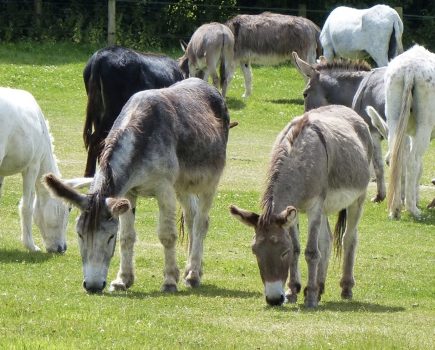The kitchen is at the heart of any smallholding, and here are some tips to make the best use of it
Last month I wrote an article about two of my favourite crops to grow on a smallholding: Jerusalem artichokes and the nation’s favourite – peas! This got me thinking about why cooking, and food, is so important in the life of a smallholder. The reason many of us strive to live the good life is not for the money, it’s for the quality.
Using your own grown ingredients and enjoying the taste of produce that you have helped to rear is an addictive bug to catch. Personally, all of my interest in sustainable living and a green lifestyle stem from the simple fact that I love eating good food. Of course, there is another more romantic influence – observing nature and enjoying wildlife. But, when it comes to making real day-to-day decisions that shape our plot, my belly normally wins!
This month, I want to share my experience as a garden chef – someone who both likes trying to create a kitchen garden and loves the cooking process. Like many smallholders, I grow food to become more self-sufficient and to enjoy the resulting perks. The kitchen is the centre of almost all smallholdings, and there are some really easy ways to make it more efficient, cheaper to run, and a space that is much more sustainable (without going back to just cooking on wood fires and washing dishes with cold water …)
Bulk buying
People often ask me if we are ‘100% self sufficient’. The answer is: “No, but I do try and eat as much food as I can grow, and the rest is either local, seasonal or organic – ideally all three..” When I want to cook with, say, chickpeas, or rice or lentils, then I don’t want to feel guilty and I want it to be convenient. One of the benefits to most smallholdings is that they are large; there are often outbuildings, sheds or old farmhouse kitchens that aren’t short on space. This extra room gives the opportunity to reduce your food bills, save on unnecessary packaging and keep a large supply of staple ingredients that make cooking more enjoyable.
We regularly buy bulk orders of organic food from a wholesaler called Essential Trading, a Fairtrade and organic wholefood co-operative based in Bristol (www.essential-trading.co.uk). They deliver in large quantities and have a list of organic food that is much cheaper than just popping out to a supermarket to buy something organic. It has to be one of my number one recommendations to any smallholder. We actually have big plastic bins full of flour and sugar which, oddly, makes it easier to bake more often. Bulk buying makes savings on transport costs and reducing waste, which is normally not an easy thing to do, achievable. If you live in a smaller place then consider doing a joint order with friends or neighbours. Also, remember to invest in some sealable plastic containers to keep it all fresh and clearly label it to avoid confusion.
Energy efficiency The kitchen at Newhouse Farm is where we all eat, meet and make tea. Generally it is always busy and so it uses the most energy. Energy costs money and, to reduce waste, we have opted for A* rated white appliances. We only boil the kettle with the water we want to use, we cook on the woodburners for much of the winter, and we have energy saving lighting (this is now available for almost all types of fittings, so get rid of those halogen spotlights and swap them for the energy saving equivalent!). To start reducing your bills in the home is almost more important than considering installing solar panels or erecting a big wind turbine. I think the best gadget is a wireless energy monitor that shows real-time how much you are using, spending and polluting (there’s a video I put together with my dad explaining this at www.ecoark.co.uk). Considering what energy you use when cooking does your produce justice. Boil water on a hob with the lid on, make sure that the burner fits the size of pan, dry chillies in an oven that has already been on, heat your water for washing the dishes with solar thermal tubes rather than paying a big electricity company … There are lots of ways to save a little bit of money in the kitchen, but my favourite is, without a doubt, the pressure cooker!
Don’t panic – your kitchen won’t explode and get covered in chicken broth! Pressure cookers
Use about a third of the gas or electric;
Cook in a third of the time;
Retain much more minerals and nutrients in the food;
New ones are now fitted with safety features,
so don’t panic – your kitchen won’t explode and get covered in chicken broth!
James Strawbridge is a TV presenter, author and sustainable living expert. His smallholding is in Cornwall. See www.newhousefarm.tv or click on Writers on this website to find out more about James







